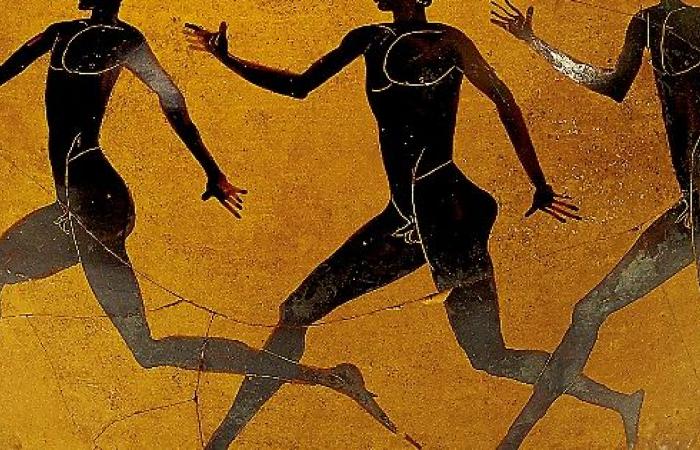Of Mario Lazzarini
Between cin about a month they will begin in Paris 33 modern Olympiadswhich retain the name of the ancient Olympic games that were held every four years in sanctuary of Zeus in Olympia, Peloponneseofficially starting in the year 776 BC. They were celebrated continuously until 393 AD, for a total of 292 editions; therefore our modern Olympics, now in their XXXIII edition, are essentially in their infancy.
Charles Pierre de Frédy, Barone di Coubertin (1863-1937) was its creator and promoter, with the first edition held in Athens in 1896. As a good romantic pedagogist, but also a French writer and politician, inspired by the well-known Latin motto Mens sana in corpore sano (In the Satires of Juvenal), he was convinced of the need for athletic and sporting practice in the education of young people. He was the inventor of the symbol of the five intertwined circles representing the 5 continents (which the Greeks did not know) and of the torch relay with the sacred fire of Olympia. Very infatuated with the classical Greek world, and above all with the imaginary settings of Olympia (film-like peplum), but not having a deep knowledge of the history and function of the ancient athletic games in Greece, created something that only remotely recalled the values and purposes of the ancient Olympics.
Even the phrase attributed to him, but which he apparently never wrote: “The important thing is not to win, but to participate”was completely unknown to the ancient Greeks and would have been incomprehensible, because for them the only important thing was to win, and they didn’t know what to do with just participating..
The various athletic games were born in Greece in very remote times as funeral ceremonies in honor of a great warrior, real or mythological, and took place around his funerary monument and in a place consecrated to him. In practice the other warriors dedicated to the deceased the example of those physical and moral qualities that the deceased had possessed in life and that were part of the common heroic baggage. Then little by little they took on a greater religious value and the designated places were the great sanctuaries venerated by all the Greeks (therefore called “panhellenic”), such as Olympia, Delphi, Corinth, Nemea.
We have the first traces inHomer’s Iliad, with the games celebrated for the hero Patroclus, cousin and friend of Achilles, who fell in battle. But already many centuries earlier, the scenes of boxing and wrestling painted in the Minoan palaces of Crete, testify to the existence of so-called sporting competitions.
Therefore these games were born in an aristocratic context, among the strongest and most illustrious warriors who had to exhibit their valor to guarantee public admiration and the right to princely power. Valentia who was not only physical, but also moral, due to family education, to that received in her own city, with a set of rules to be respected to honor above all the gods, without whose favor any physical prowess was useless. It was that spirit of competition, which with the Greek word we define as “agonism”.
Before the games began, the athletes took a solemn oath to sanctuary of Zeus proclaiming that they were Greeks and free citizens (foreigners and slaves were not admitted), that they respected the rules of loyalty and honesty towards their opponents and the judges of the competition, and that they did not use tricks or deceptions to gain victory. The punishments for transgressors were very severe: they ranged from disqualification to heavy fines and even corporal punishment such as flogging; the guilty could be forced to have expensive statues of Zeus erected at their own expense, as atonement; to demonstrate that there have always been crafty people at Olympia, many statues were erected to pay the fines. But the most serious punishment was shame in front of the entire audience and their fellow citizens, which practically meant for them exclusion from social life.
The competition was between individuals and the aim was only victory: one won, all the others were defeated and dishonoured, and whoever withdrew during a race was considered a coward and punished by the judges. Therefore, there were no second and third places, silver or cardboard medals, and for the same reason the Greeks never conceived of team sports, where the merits for victory must necessarily be shared among all the members of the team.
But the winning athletes were only awarded a wreath of laurel leaves: no medals, no advertising contracts, nothing. prize pool worth millions of drachmas! However, he was entitled to the honorific songs of the most famous poets which would remain in memory over the centuries, the triumph upon returning to his hometown with public ceremonies of thanks to the gods, the right to a lifelong seat in the front row at the theater (ancestry) and often also to one free meal a day for life at the expense of the state; which was no small thing in times when there was not a great abundance of food.






